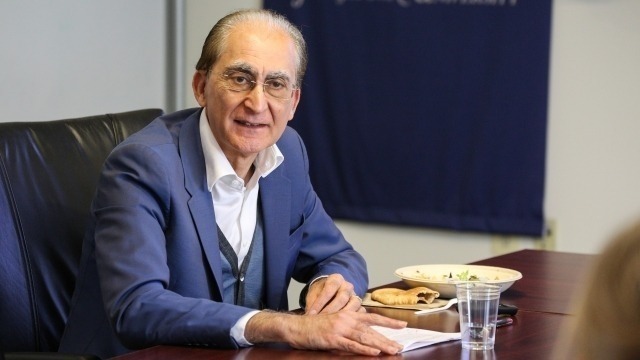Freilich Lecture in Bigotry and Tolerance: Professor Tariq Modood on 'Islamophobia and the Struggle for Recognition'
Date & time
Location
Speakers
Event series
Contacts
SHARE

The Freilich Foundation is pleased to announce that Professor Tariq Modood will present this year's Freilich Lecture:
'Islamophobia and the Struggle for Recognition'
The Runnymede Trust (London) launched the public career of the concept of Islamophoba in 1997. It was too located in the field of religious tolerance and pluralism and I pioneered an alternative understanding of Islamophobia that defines it as anti-Muslim racism in the context of multicultural citizenship. I am delighted that this is emerging as the dominant interpretation of Islamophobia, (having been accepted some years ago by UNESCO and recently by the Runnymede Trust itself). And more generally that the concept is establishing itself in social science and public discourse alike. Yet I have some misgivings by the direction that some Islamophobia/Muslim studies are taking. My approach sees racialised ethno-religious group identity as having an ‘inside’ but in much of social science it is understood as something that is ‘constructed from the outside’, namely that it is an ascribed identity, constructed as a form of ‘Othering’. I think that both these aspects of groupness have a real world existence and political significance, and cannot be reduced to each other, but a lot of social studies is focused on ‘othering’ alone. I challenge this latter orientation by arguing that being a Muslim is an identity that is capable of being ‘recognised’ and so necessarily has a dimension of group inter-subjectivity. I make a multiculturalist plea for studying Islamophobia (and groups negatively perceived from the outside, generally) within a normative framework which prioritises groups fighting outsider perceptions by boosting insider identifications (‘the struggle for recognition’).
Tariq Modood is Professor of Sociology, Politics and Public Policy and the founding Director of the Centre for the Study of Ethnicity and Citizenship at the University of Bristol and the co-founder of the international journal, Ethnicities. He has held over 40 grants and consultancies, has over 35 (co-)authored and (co-)edited books and reports and over 200 articles and chapters. He was a Robert Schuman Fellow at the European University Institute for part of 2013-15, a ‘Thinker in Residence’ at the Royal Academy of Flanders, Brussels in 2017. He is highly committed to public engagement. His work is frequently cited by policy-makers and practitoners and on several occasions has influenced policy. His impact case study, ‘Influencing law, policy and public discourse on the accommodation of Muslims in Britain’ was one of three which collectively were ranked as 3rd in the UK by the Sociology 2013 REF. He was awarded a MBE for services to social sciences and ethnic relations in 2001, was made a Fellow of the Academy of Social Sciences in 2004 and elected a Fellow of the British Academy in 2017. He served on the Commission on the Future of Multi-Ethnic Britain, the National Equality Panel, and the Commission on Religion and Belief in British Public Life. His latest books include Multiculturalism: A Civic Idea (2nd ed; 2013); and as co-editor Multiculturalism Rethought (2015), Multiculturalism and Interculturalism: Debating the Dividing Lines (2016) and The Problem of Religious Diversity: European Problems, Asian Challenges (2017).
Light refreshments will be served in the downstairs foyer after the lecture. Please register to assist with catering arrangements.
Professor Modood will also be conducting a Graduate Workshop on multiculturalism during his visit.
Media: https://soundcloud.com/experience_anu/annual-freilich-lecture-in-bigotry...










